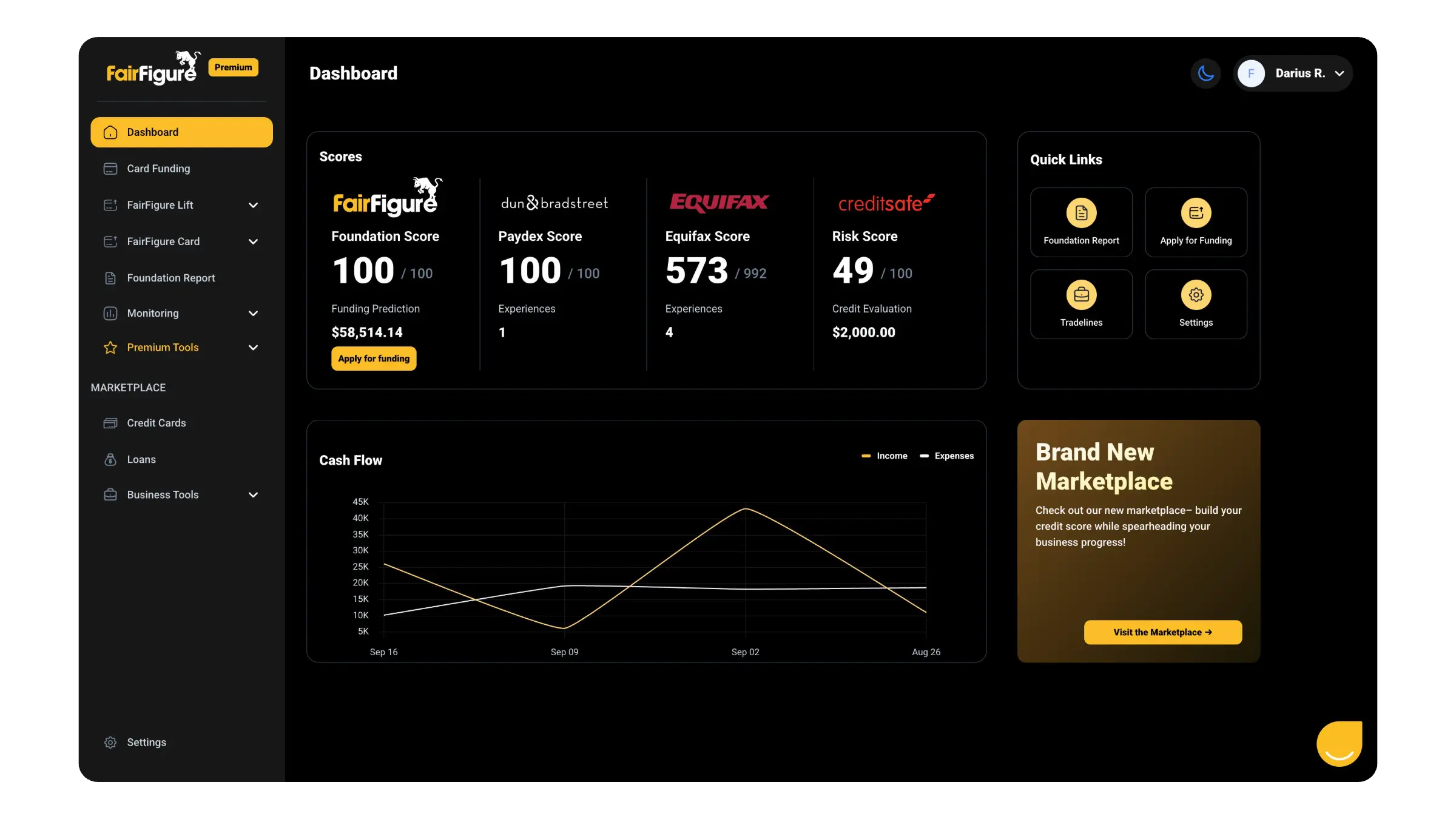Home Depot Net 30 Review
Author: Nick Alex Gallo
January 23, 2026
7 min read
TABLE OF CONTENTS
- 1. Is the Home Depot Net 30 Account Worth It?
- 2. Home Depot’s Net 30 Account Advantages
- 3. Reports to All Major Credit Bureaus
- 4. Potential Net 60 Terms
- 5. No Unavoidable Fees and a Discount for Early Payments
- 6. Home Depot’s Net 30 Account Disadvantages
- 7. May Require a Personal Guarantee
- 8. Home Depot’s Net 30 Approval Requirements

Start your credit building journey for your business

The Home Depot net 30 account, commonly referred to as the Home Depot commercial account, is a vendor tradeline that can help you build business credit and finance purchases with the home improvement supplier.
If you’re considering applying for the account, here’s what you should know about its advantages, disadvantages, and approval requirements.
Is the Home Depot Net 30 Account Worth It?

Home Depot’s commercial account is often well worth adding to your credit mix if you can qualify. Since there are no application fees, recurring account costs, or interest charges, it’s essentially free to use as long as you make your payments on time.
In addition, the account’s benefits are significant. Not only does it help you build business credit with all three of the major commercial credit bureaus, but it also provides a discount for paying balances off early.
There’s also a chance you’ll be able to secure net 60 payment terms, doubling your time to pay back your debts.
If you’re looking for other tier 1 business credit vendors to flesh out your credit report, read our Wise Business Plans Net 30 Review.
Home Depot’s Net 30 Account Advantages
Reports to All Major Credit Bureaus
Net 30 accounts are one of the best ways to start climbing the business credit tiers as a new business owner.
As vendor tradelines, they’re generally easier to qualify for than financial tradelines, such as a credit card.
However, net 30 accounts can only benefit your business credit if they report to the business credit bureaus. Otherwise, they won’t appear in your business credit reports or improve your score, even if you pay on time.
Home Depot’s net 30 account is one of the relatively uncommon ones that reports to each major business credit bureau, including Dun & Bradstreet (D&B), Experian Business, and Equifax Business.
Potential Net 60 Terms
By definition, net 30 accounts provide net 30 repayment terms, which means you have 30 days from your purchase date to pay off your balance before being subject to any potential late fees or interest charges.
However, the Home Depot commercial account allows many users to adopt a net 60 schedule. That doubles the length of time you have to pay, which can help smooth out your net cash flow.
According to a customer service representative we spoke to, new account holders typically receive net 30 terms by default, but most can request that they be allowed to adopt a net 60 repayment term eventually, if not immediately.
No Unavoidable Fees and a Discount for Early Payments
While net 30 accounts typically aren’t overly expensive to maintain, many of them do carry some kind of cost. That may be an application fee, a minimum purchase value to apply, or a recurring annual fee.
These can add up over time, especially since you may need half a dozen or more trade credit accounts to establish your business credit score as a new business owner.
However, the Home Depot net 30 account is free to apply for and keep open. In fact, you can actually get a 2% discount on each invoice when you pay them online within the first 20 days of your original purchase date.
However, you will incur a late fee if you fail to pay off your balance by the due date. It’s $20 for balances up to $100, and $35 for balances of $100 and over.
Home Depot’s Net 30 Account Disadvantages
May Require a Personal Guarantee
Home Depot’s commercial account is open to new businesses, but you’ll probably struggle to qualify in your company’s name due to a lack of business credit history. To make up for that, you may need to sign a personal guarantee.
Personally guaranteeing your company’s debt means that you become personally liable for it. If your company fails to make its payments and defaults, you’ll still be on the hook for the outstanding balance.
Home Depot generally requires personal guarantees for any business that meets one or more of the following criteria:
- Is less than two years old
- Has fewer than 10 employees
- Is a partnership or proprietorship
- Has less than $2M in annual sales (not net earnings)
This isn’t an unusual requirement, so it’s not necessarily a reason to avoid Home Depot’s commercial account, but make sure you understand the risks.
If you default, not only will you put your personal finances and assets at risk, but your personal credit score can also suffer.
Home Depot’s Net 30 Approval Requirements
Home Depot’s net 30 account has several fundamental eligibility requirements.
For example, you must be a resident of the United States, agree to use the business account for commercial purchases only, and be at least 18 years old if you’re signing as a guarantor (21 years old in Puerto Rico).
However, Home Depot’s credit score requirements are typically the most significant hurdle to clear.
To secure an account with your business credit, your company must be a separate legal entity, have more than 10 employees, at least $2M in annual revenue, and be no younger than two years old.
If it doesn’t meet those requirements, you’ll have to sign a personal guarantee to qualify, in which case your personal credit score will also factor into your chances of approval.
Home Depot doesn’t publicly disclose the minimum personal credit score you need to qualify, but it should be possible with a good credit score, which is defined as a FICO Score 8 of at least 670.
If you only barely meet the requirements to qualify, you may receive a lower credit limit. As of the time of writing, credit limits can be as low as $1,000, though you can request an increase after demonstrating responsibility with the account.
Note that the commercial account is separate from the Home Depot credit card for business, referred to as its Pro Xtra account. We also did a Summa Office Supplies Review as well.
Build Business Credit With FairFigure
Building business credit with net 30 vendors is a time-tested strategy, but that doesn’t mean they're always the best option. In many cases, a FairFigure subscription can be a much more efficient tool for achieving a good business credit score.
For $30 per month, you’ll unlock the FairFigure Capital Card, one of the few true EIN-only business credit accounts available.

You never have to undergo a personal credit check or sign a personal guarantee to qualify. You only need three months in business and $2,500 in monthly recurring revenue.
Not only do we report your FairFigure card as a financial tradeline, but we’ll also report your monthly subscription as a vendor tradeline, granting you two new business credit accounts for the price of one.
To top it off, all accounts include free business credit monitoring so you can keep track of your progress. Sign up today to streamline your business credit building!
More articles
Read More >
January 23, 2026
5 min read

January 23, 2026
5 min read

January 23, 2026
3 min read

Start your credit building journey for your business

Start your credit journey now with FairFigure